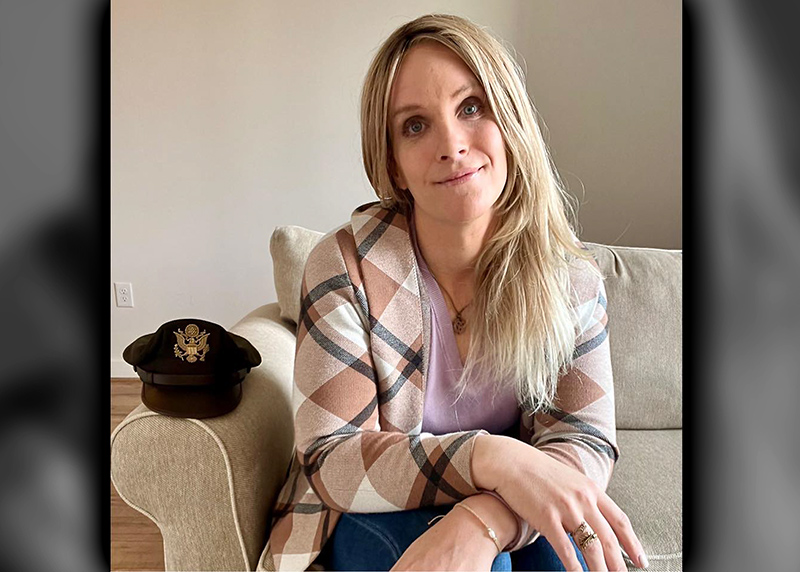Virginia Supreme Court hears challenge to Fairfax nondiscrimination policy
Court will rule whether local school boards have the authority to pass their own policies

On Thursday, the Virginia Supreme Court heard arguments in a case challenging Fairfax County’s student and employee nondiscrimination policy after a 16-year-old student complained that the policy makes him uncomfortable and violates his right to privacy.
The student, known as John Doe, and his parents sued after the Fairfax County School Board added sexual orientation and gender identity to the list of protected classes covered by the policy. According to Doe, he is “distressed” because he feels uncomfortable being around transgender students, and having to potentially share a restroom with a transgender male, whom he would consider a “girl.”
Andrea Lafferty, a Fairfax County resident and president of Women for a Great America, also joined as a plaintiff in the lawsuit, which claims that the school board did not have the right to pass the policy. Under Dillon’s Rule, municipalities and county governments are barred from enacting nondiscrimination measures that are more robust than those approved by the General Assembly.
The Fairfax County Circuit Court ruled that John Doe did not have standing to sue, because he had experienced no injury, such as being threatened with expulsion or suspension for his objection to the policy. But Liberty Counsel, a right-wing legal organization representing the plaintiffs, appealed the decision to the Virginia Supreme Court, which agreed to take the case.
But the Fairfax County School Board, bolstered by an opinion from Attorney General Mark Herring, claims that Dillon’s Rule does not apply to local school boards, which are allowed to pass comprehensive nondiscrimination policies as they see fit. Because of a statute passed by the General Assembly that gives local school boards great leeway over crafting policy, supporters say, the board had the authority to approve the protections for transgender and gender-nonconforming students, staff and employees.
The spat over Fairfax’s policy comes just as the nation is mired in several fights over the status of transgender people. The case of Gavin Grimm, a student from Gloucester County who sued over a policy barring him from the boys’ restroom, is slated to be heard by the U.S. Supreme Court on Mar. 28. The court will hear oral arguments to decide if transgender students have a right to equal treatment (meaning being treated according to their gender identity) under Title IX, which prevents discrimination “on the basis of sex.”
The Trump administration recently rescinded federal guidance set forth by the Obama administration that had urged school districts to treat transgender and gender-nonconforming students according to their gender identity, including allowing them to access restrooms different from their assigned sex at birth. The Trump Department of Justice has also backed away from supporting Grimm’s contention that Title IX should be interpreted to cover transgender students.
If the Supreme Court decides in Grimm’s favor, the result would be that Fairfax would be required to keep its current policies on transgender students in place under Title IX — even if the policy is found to violate Dillon’s Rule.
But even if Grimm loses at the Supreme Court on his Title IX claim, transgender students may have another way to ensure the protections they currently enjoy stay in place. In a recent case out of Pennsylvania, a federal judge halted a school district from enforcing a policy that barred transgender children from facilities matching their gender identity. According to the judge, the district’s trans-exclusionary policy is unconstitutional because it violates transgender students’ rights under the Fourteenth Amendment’s Equal Protection Clause.
Support Metro Weekly’s Journalism
These are challenging times for news organizations. And yet it’s crucial we stay active and provide vital resources and information to both our local readers and the world. So won’t you please take a moment and consider supporting Metro Weekly with a membership? For as little as $5 a month, you can help ensure Metro Weekly magazine and MetroWeekly.com remain free, viable resources as we provide the best, most diverse, culturally-resonant LGBTQ coverage in both the D.C. region and around the world. Memberships come with exclusive perks and discounts, your own personal digital delivery of each week’s magazine (and an archive), access to our Member's Lounge when it launches this fall, and exclusive members-only items like Metro Weekly Membership Mugs and Tote Bags! Check out all our membership levels here and please join us today!






















You must be logged in to post a comment.